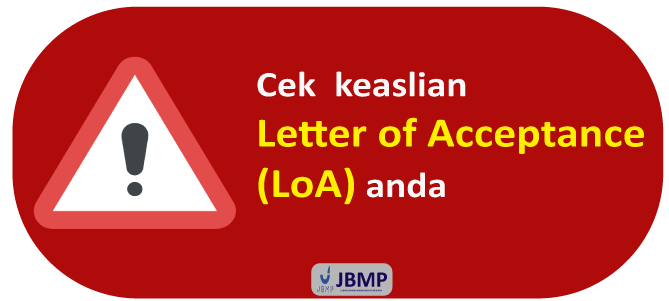Analisis regresi untuk menghitung pengaruh kepemimpinan instruksional kepala sekolah terhadap kinerja guru
 ), Singgih Ginanjar(2),
), Singgih Ginanjar(2), (1) Administrasi Pendidikan, Universitas Negeri Padang
(2) Administrasi Pendidikan, Universitas Negeri Padang, Indonesia
 Corresponding Author
Corresponding Author
DOI : https://doi.org/10.24036/jbmp.v12i2.126634
Full Text:
 Language : id
Language : id
Abstract
Keywords
References
Afrina, D. (2019). Hubungan Kepemimpinan Instruksional Kepala Sekolah Dan Efikasi Diri Dengan Kinerja Mengajar Guru. Manajer Pendidikan, 13(2), 146-157.
Amalda, Nastiti & Prasojo, Lantip Diat. (2018). Pengaruh Motivasi Kerja Guru, Disiplin Kerja Guru, Dan Kedisiplinan Siswa Terhadap Prestasi Belajar Siswa. Jurnal Akuntabilitas Manajemen Pendidikan, 6(1),11-21.
Bellibaş, M. Ş., & Gümüş, S. (2021). The effect of learning-centred leadership and teacher trust on teacher professional learning: Evidence from a centralised education system. Professional development in education, 1-13.
Bendikson, L., Robinson, V., & Hattie, J. (2012). Principal instructional leadership and secondary school performance. SET: Research information for teachers(1), 2-8.
Cansoy, R., & Parlar, H. (2018). Examining the relationship between school principals instructional leadership behaviors, teacher self-efficacy, and collective teacher efficacy. International Journal of Educational Management, 32(4), 550-567. doi: 10.1108/ijem-04-2017-0089
Chen, J., & Guo, W. (2020). Emotional intelligence can make a difference: The impact of principals emotional intelligence on teaching strategy mediated by instructional leadership. Educational Management Administration & Leadership, 48(1), 82-105.
DeNisi, A., & Smith, C. E. (2014). Performance appraisal, performance management, and firm-level performance: A review, a proposed model, and new directions for future research. Academy of Management Annals, 8(1), 127-179.
Fitria, H. (2018). The influence of organizational culture and trust through the teacher performance in the private secondary school in Palembang. International Journal of Scientific & Technology Research, 7(7), 82-86.
Gaol, N. T. L., & Siburian, P. (2018). Peran Kepala Sekolah Dalam Meningkatkan Kinerja Guru. Kelola: Jurnal Manajemen Pendidikan, 5(1), 66-73.
Gómez, L. F., & Valdés, M. G. (2019). The Evaluation of Teacher Performance in Higher Education. Journal of Educational Psychology-Propositos y Representaciones, 7(2), 499-515.
Haiyan, Q., Walker, A., & Xiaowei, Y. (2017). Building and leading a learning culture among teachers: A case study of a Shanghai primary school. Educational Management Administration & Leadership, 45(1), 101-122.
Hallinger, P., Gümüş, S., & Bellibaş, M. Ş. (2020). 'Are principals instructional leaders yet?'A science map of the knowledge base on instructional leadership, 19402018. Scientometrics, 122(3), 1629-1650.
Hallinger, P., Piyaman, P., & Viseshsiri, P. (2017). Assessing the effects of learning-centered leadership on teacher professional learning in Thailand. Teaching and Teacher Education, 67, 464-476.
Hallinger, P., Walker, A., Nguyen, D. T. H., Truong, T., & Nguyen, T. T. (2017). Perspectives on principal instructional leadership in Vietnam: a preliminary model. Journal of Educational Administration.
Istanti, E., Soeherman, A. D. G., Budianto, F., Noviandari, I., & Sanusi, R. (2020). The influences of motivation, work milieu, and organizational commitment on teacher performance in MTS Negeri 4 (Public Islamic School), Surabaya East Java. https://www. ijicc. net/index. php/volume-13-2020/182-vol-13-iss-2, 3(2), 629-642.
Juni. D. W. (2012). Kepemimpinan Instruksional Kepala Madrasah dan Inovatif Guru terhadap Produktivitas Kerja Guru Madrasah Ibtidaiyah Se-Kecamatan Manis Renggo Klaten. Jurnal Ilmu Pendidikan. Diunduh pada tanggal 29 Oktober 2018, dari http://repo.iaintulungagung.ac.id/50 /7/.pdf
Karacabey, M. F., Bellibaş, M. Ş., & Adams, D. (2022). Principal leadership and teacher professional learning in Turkish schools: Examining the mediating effects of collective teacher efficacy and teacher trust. Educational studies, 48(2), 253-272.
Lailatussaadah. (2015). Upaya Peningkatan Kinerja Guru. Intelektualita Journal of Education Sciences and Teacher, 3(1), 15-25.
Li, L., Hallinger, P., & Walker, A. (2016). Exploring the mediating effects of trust on principal leadership and teacher professional learning in Hong Kong primary schools. Educational Management Administration & Leadership, 44(1), 20-42.
Liu, S., & Hallinger, P. (2017). Leading teacher learning in China: A mixed methods study of successful school leadership How school leaders contribute to student success (pp. 279-303): Springer.
Liu, S., & Hallinger, P. (2018). Principal instructional leadership, teacher self-efficacy, and teacher professional learning in China: Testing a mediated-effects model. Educational Administration Quarterly, 54(4), 501-528.
Lunenburg, F., & Irby, B. (2005). The principalship: Vision to action. Boston: Cengage Learning.
Moos, L., Johansson, O., & Day, C. (2011). How school principals sustain success over time: International perspectives (Vol. 14). Jerman: Springer Science & Business Media.
Rosmawati, R., Ahyani, N., & Missriani, M. (2020). Pengaruh Disiplin dan Profesionalisme Guru terhadap Kinerja Guru. Journal of Education Research, 1(3), 200-205.
Shengnan, L., & Hallinger, P. (2021). Unpacking the effects of culture on school leadership and teacher learning in China. Educational Management Administration & Leadership, 49(2), 214-233.
Sunardi, S., Nugroho, P. J., & Setiawan, S. (2019). Kepemimpinan Instruksional Kepala Sekolah. Equity in Education Journal, 1(1), 20-28.
Susanto, A. (2016). Konsep, strategi, dan implementasi manajemen peningkatan kinerja guru. Jakarta: Prenadamedia Group.
Tuytens, M., & Devos, G. (2018). Teacher evaluation policy as perceived by school principals: The case of Flanders (Belgium). Teachers and teaching, 24(3), 209-222.
Van Waeyenberg, T., Peccei, R., & Decramer, A. (2020). Performance management and teacher performance: The role of affective organizational commitment and exhaustion. The International Journal of Human Resource Management, 1-24.
Yusuf, A. M. (2016). Metode penelitian kuantitatif, kualitatif & penelitian gabungan. Jakarta: Prenada Media.
 Article Metrics
Article Metrics
 Abstract Views : 214 times
Abstract Views : 214 times
 PDF (Bahasa Indonesia) Downloaded : 56 times
PDF (Bahasa Indonesia) Downloaded : 56 times
Refbacks
- There are currently no refbacks.




